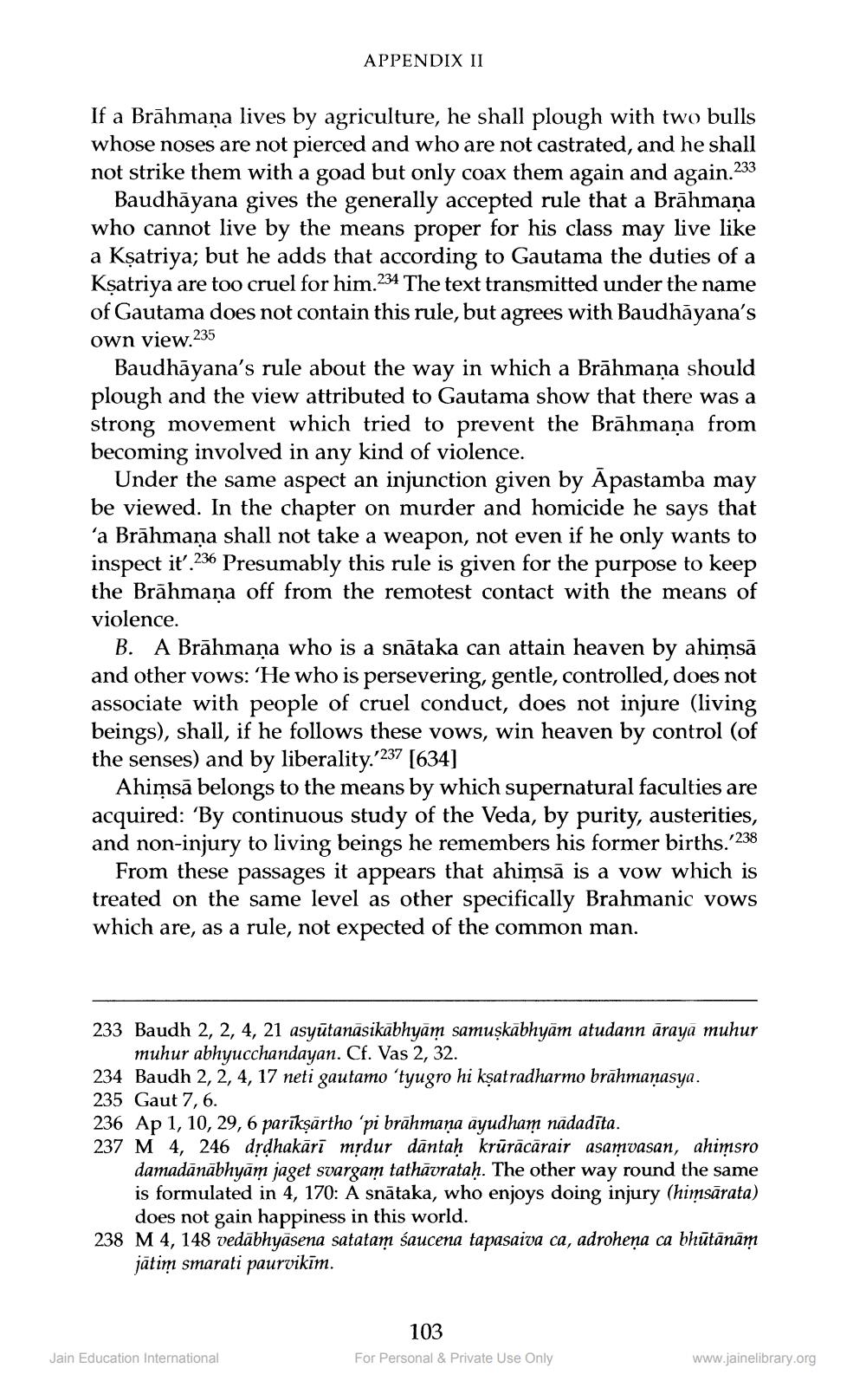________________
APPENDIX II
If a Brāhmaṇa lives by agriculture, he shall plough with two bulls whose noses are not pierced and who are not castrated, and he shall not strike them with a goad but only coax them again and again.233
Baudhāyana gives the generally accepted rule that a Brāhmaṇa who cannot live by the means proper for his class may live like a Ksatriya; but he adds that according to Gautama the duties of a Kṣatriya are too cruel for him.234 The text transmitted under the name of Gautama does not contain this rule, but agrees with Baudhayana's own view 235
Baudhāyana's rule about the way in which a Brāhmaṇa should plough and the view attributed to Gautama show that there was a strong movement which tried to prevent the Brāhmaṇa from becoming involved in any kind of violence.
Under the same aspect an injunction given by Apastamba may be viewed. In the chapter on murder and homicide he says that ‘a Brāhmaṇa shall not take a weapon, not even if he only wants to inspect it'.236 Presumably this rule is given for the purpose to keep the Brāhmaṇa off from the remotest contact with the means of violence.
B. A Brāhmaṇa who is a snātaka can attain heaven by ahimsā and other vows: 'He who is persevering, gentle, controlled, does not associate with people of cruel conduct, does not injure (living beings), shall, if he follows these vows, win heaven by control (of the senses) and by liberality.'237 [634]
Ahimsa belongs to the means by which supernatural faculties are acquired: 'By continuous study of the Veda, by purity, austerities, and non-injury to living beings he remembers his former births.'238
From these passages it appears that ahimsa is a vow which is treated on the same level as other specifically Brahmanic vows which are, as a rule, not expected of the common man.
233 Baudh 2, 2, 4, 21 asyūtanāsikābhyām samuṣkābhyām atudann ārayā muhur muhur abhyucchandayan. Cf. Vas 2, 32.
234 Baudh 2, 2, 4, 17 neti gautamo 'tyugro hi kṣatradharmo brāhmaṇasya. 235 Gaut 7, 6.
236 Ap 1, 10, 29, 6 parīkṣārtho 'pi brāhmaṇa ayudham nādadīta.
237 M 4, 246 drdhakarī mṛdur dāntaḥ krūrācārair asamvasan, ahimsro damadānābhyām jaget svargam tathāvrataḥ. The other way round the same is formulated in 4, 170: A snātaka, who enjoys doing injury (himsarata) does not gain happiness in this world.
238 M 4, 148 vedabhyasena satatam saucena tapasaiva ca, adrohena ca bhūtānām jātim smarati paurvikīm.
Jain Education International
103
For Personal & Private Use Only
www.jainelibrary.org




